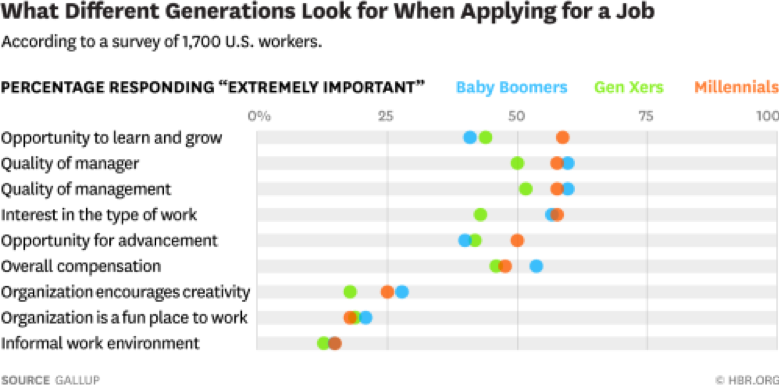Responsible for recruiting, screening, interviewing, and placing employees, Human Resource departments lay the foundation for an engaged workforce. They need to attract and hire the best candidates who are already primed and ready to engage with the company’s mission and their decisions can have a big impact on how smoothly the company runs.
But HR professionals aren’t just gatekeepers whose job is to ‘let in’ employees with engagement potential. They’re also partially responsible for maintaining engagement through handling employee relations, benefits, and training.
Having a cutting-edge employee engagement program in place makes all of these tasks easier, ensuring HR can attract and hire the best candidates who can powerfully contribute to their company’s success. Here’s how employee engagement and HR strengthen each other – and the company.
Recruitment – employee engagement is a big perk
High employee engagement is almost inseparable from having a great workplace culture. The two go hand in hand. And the combination is a considerable selling point to potential hires for whom money is often a secondary consideration. In the Harvard Business Review article “What Matters More to Your Workforce than Money,” Glassdoor’s Chief Economist Andrew Chamberlain said that while pay is important, workplace culture and values matter most when it comes to employee satisfaction.
One of the most striking results we’ve found is that, across all income levels, the top predictor of workplace satisfaction is not pay: It is the culture and values of the organization, followed closely by the quality of senior leadership and the career opportunities at the company. Among the six workplace factors we examined, compensation and benefits were consistently rated among the least important factors of workplace happiness.
Does that also hold true for prospective hires? Yes. Especially for, but not limited to, Millennials.
Gallup’s report “How Millennials Want to Work and Live” included these compelling survey results: The top 5 primary factors involved in the decision of whether to take a new job don’t include compensation.

Studies have shown that more perks don’t result in employee engagement, but high employee engagement, combined with opportunities to learn and grow, can be a compelling draw that attracts employees who want to take a deep and enthusiastic interest in their jobs.
Optimize the hiring process for engagement
When you make it clear during the interview process that you have a company-wide commitment to employee engagement, you’ll see one of two things happen. Either the prospect’s eyes will light up – they’re ready to bring their whole selves to their role – or, that prospect will leave as soon as possible (they want a job where they get paid for showing up).
We’ve even seen this happen with current employees too. As soon as the company shows that it’s absolutely committed to improving employee engagement by taking action on employee feedback and empowering employees to take some of the responsibility for engagement on themselves, the employees who don’t want to be engaged leave, making room for fresh employees who want more from their jobs than just payment for their presence!
Bonus tip: When considering a potential hire at Engagement Multiplier, we invite current team members with roles that will be impacted by the new hire into the interview process. They help find the right fit, not just for the job, but for the team. We also ask our last round of candidates to take the Kolbe A™ Index for insights into their strengths, how they approach productivity and how they solve problems so we can balance our teams based on strengths and weaknesses.
Improve employee relations
Usually, employees only come to HR when they have problems so severe, they have nowhere else to turn. By that point, the damage to morale has been done. But an employee engagement platform, like Engagement Multiplier, that asks for feedback every 90 days is a proactive way to become aware of issues before they become problems – and get everyone involved in fixing them.
Our platform is designed to ensure 100% anonymity for all survey respondents, providing space for open and honest communication without fear of harming their professional reputation or provoking retaliation. Armed with those honest answers, leadership can address pressing issues and HR can use that information to set up current and new employees for future success.



